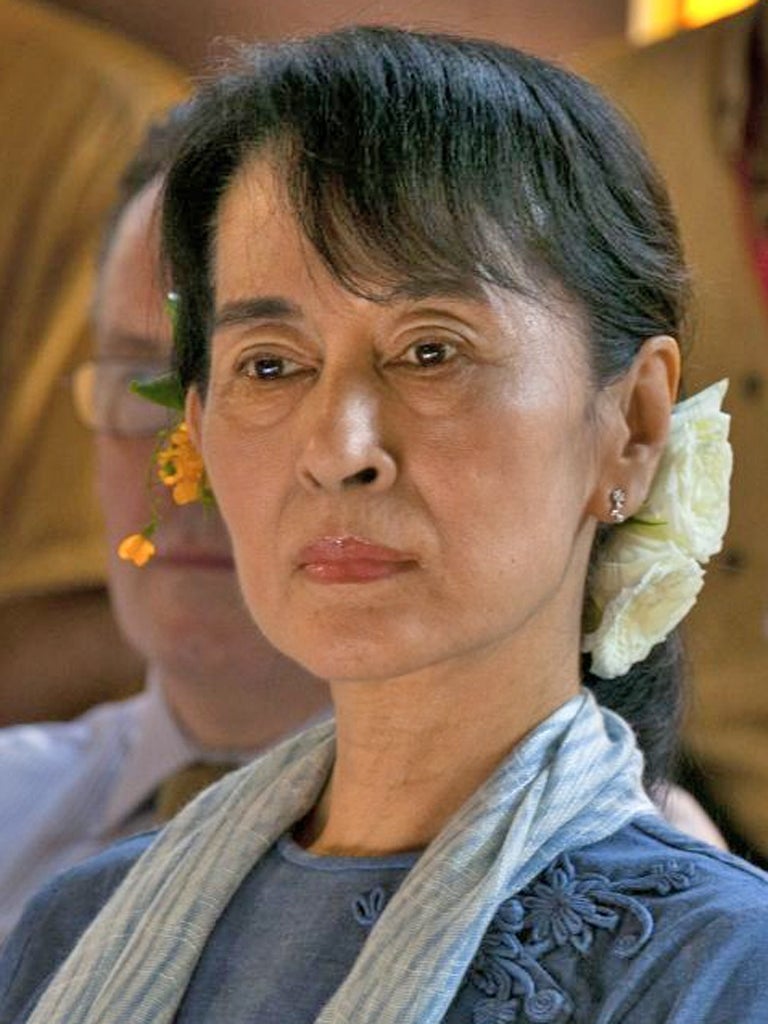Burma's opposition leader Aung San Suu Kyi has confirmed she will run for a parliamentary seat in April by-elections.
Party spokesman Nyan Win said today that the Nobel Peace Prize winner announced during a party meeting that she will seek a seat in suburban Rangoon,Burma's largest city and her hometown.
Ms Suu Kyi's presence will add star power and significance to upcoming by-elections that will be held nearly one year after nominally democratic elections ended a half century of military rule.
Her National League for Democracy Party decided to rejoin electoral politics amid signs that the new government is easing years of repression.
Ms Suu Kyi said last year that she would run for parliament but had appeared to backtrack since then.
A victory would give the Nobel Peace Prize winner and long-time political prisoner a voice in parliament for the first time in her decades-long role as the country's opposition leader.
She was under house arrest during November 2010 elections, which were boycotted by her National League for Democracy Party in part because she was barred from participating.
The elections, Burma's first in 20 years, replaced a ruling military junta with a government that remains strongly linked to the military but has taken steps toward easing decades of repression.
Ms Suu Kyi's decision to personally contest the April polls is the latest vote of confidence for government reforms that include the legalisation of labour unions, increasing press freedom and opening a dialogue with Ms Suu Kyi herself.
Even if Ms Suu Kyi's party wins all 48 seats to be contested on April 1, it will have minimal power. Most of the seats were vacated by politicians who became cabinet ministers after the first parliamentary session last January.
The military is guaranteed 110 seats in the 440-seat lower house and 56 seats in the 224-seat upper house, and the main pro-military party holds 80% of the remaining 498 elected seats.
Ms Suu Kyi's party won a sweeping victory in the 1990 general election but the junta refused to honour the results.
The military regime kept Ms Suu Kyi under house arrest on-and-off for 15 years, hoping to snuff out her popularity. Despite never having held elected office, she became Burma's most recognisable face and a beacon for the country's pro-democracy movement.
Subscribe to Independent Premium to bookmark this article
Want to bookmark your favourite articles and stories to read or reference later? Start your Independent Premium subscription today.


Join our commenting forum
Join thought-provoking conversations, follow other Independent readers and see their replies